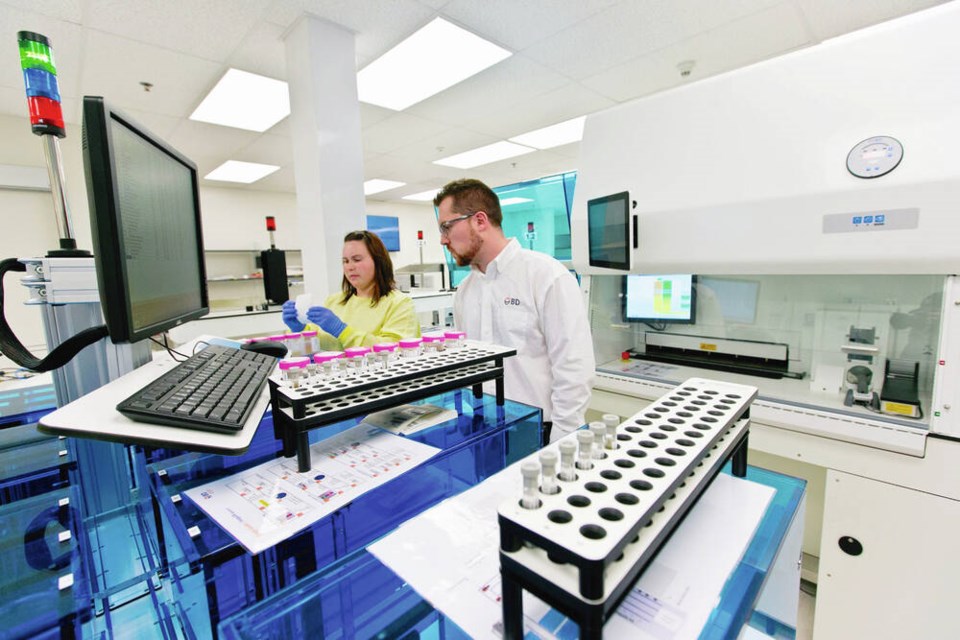B.C. is adding 322 training seats at post-secondary institutions around the province for clinical pharmacists, laboratory technologists, physiotherapists and other health professionals.
That includes 15 new social-worker seats at the University of Victoria and one-time funding of up to $228,720 for Camosun College’s Certified Medical Laboratory Assistant Program, which will reduce tuition by $9,530 to a total of $5,000 for those starting classes in September.
In addition, Vancouver Island University will receive 15 pharmacy-technician seats in partnership with Selkirk College.
The Camosun medical laboratory assistant program has 24 seats, with 21 already filled.
“Absolutely the laboratory division of medicine is suffering from staffing shortages,” said program leader Alex Purdy. “We’ve seen the impact here in Victoria, for sure, through our staff in the public and private sector of [laboratories].”
Purdy said the tuition discount is a “huge bonus” for students.
In June, Island Health pointed to a national shortage of trained laboratory staff as temporarily closed a medical lab in Sidney. The Canadian Society for Medical Laboratory Science called last year for action to address labour shortages in the field, citing the COVID-19 pandemic as a factor.
At UVic, Helga Hallgrimsdottir, dean of the Faculty of Human and Social Development, said the new social-worker seats will be for master’s students, increasing the number at the university from the current 20 to 35.
“It’s always great news to have more students,” she said. “And it’s part of a renewed mission and engagement with really supporting community.”
Incoming master’s students already have a degree and work experience, Hallgrimsdottir said.
“They are working in harm reduction, with youth who are transitioning in and out of care, they’re working in addictions, homelessness.”
Some of those jobs are in government, while others are in the non-profit sector, she said.
Health Minister Adrian Dix said the public has been telling the government how important it is to have more health services.
“That’s why we’re supporting public post-secondary institutions to expand and create pathways to get more health workers into the system.”
Dix said that more still needs to be done “and we will continue our work to grow B.C.’s health-care workforce.”
Along with more seats, the province is also putting more than $10 million into bursaries and professional development.
As well, there will be a new program to help advance-care paramedics from other provinces and countries transition to working in B.C., and up to 20 fast-track seats at Thompson Rivers University for respiratory therapists.
Kane Tse, president of the Health Sciences Association, a union representing more than 20,000 professionals in acute care, long-term care and community health, said more training seats will help “urgently fill” many skilled positions.
Earlier this year, the nurse-practitioner program at UVic expanded, as did similar programs at the University of B.C. and the University of Northern B.C.
The chronic shortage of doctors in B.C. has dominated health-care headlines in recent months. An estimated one in five British Columbians do not have a family doctor.




